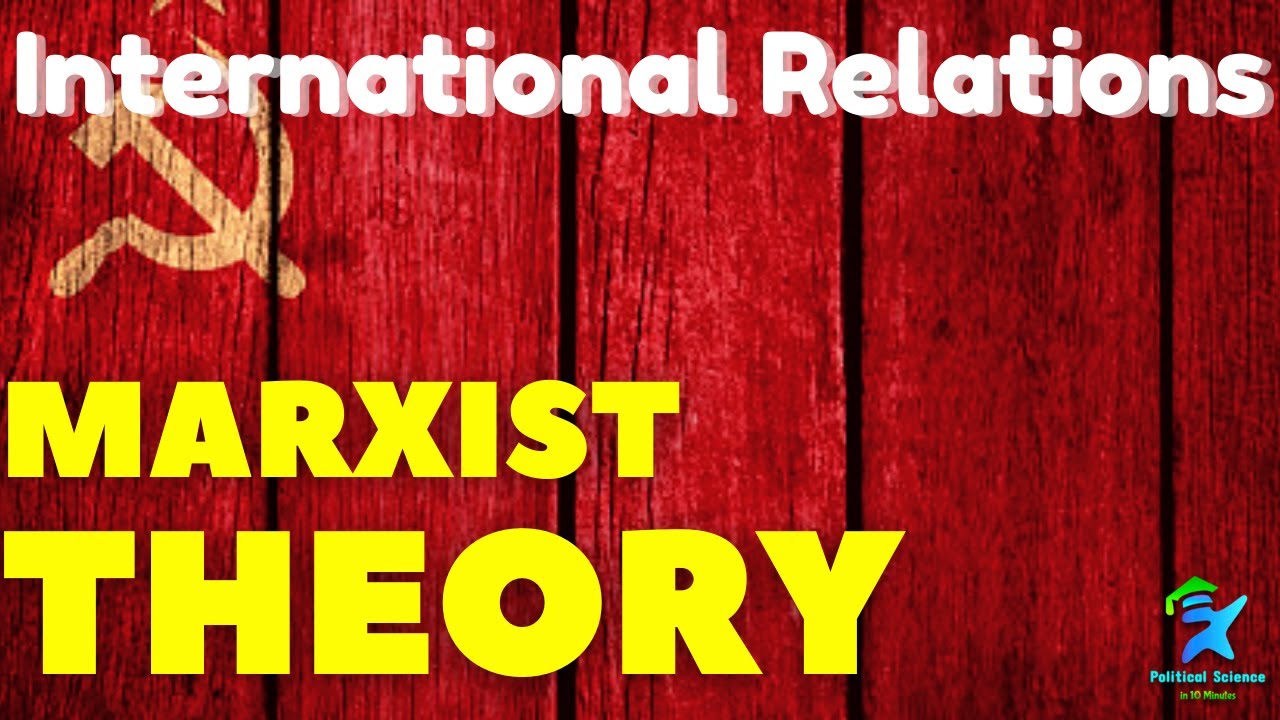Marxisme dalam Tata Kelola Global
Summary
TLDRThe video features a group discussion led by Rezky, exploring Marxism and its critique of global governance. It highlights how Marxism focuses on class conflict, emphasizing the divide between the bourgeoisie and proletariat, and critiques capitalism for creating social inequalities. The discourse examines the historical context of global governance, illustrating how dependency on powerful nations like the U.S. perpetuates inequities, especially in Latin America. Ultimately, Marxism is presented as a framework for addressing social injustices arising from globalization, advocating for class struggle as a solution to these systemic issues.
Takeaways
- 😀 The group discusses Marxism and global governance through four questions.
- 😀 Marxism emphasizes structural human issues rather than individual human nature.
- 😀 The theory arose from the social stratification between countries, such as core and semi-peripheral nations.
- 😀 Karl Marx and Friedrich Engels criticized capitalism for creating social inequality and class divisions.
- 😀 Marxism posits that society is generally characterized by conflicts of interest between the bourgeoisie and the proletariat.
- 😀 The theory identifies two main social classes: the wealthy elite and the working class.
- 😀 Marx viewed labor as the source of value, critiquing capitalism as an exploitative system.
- 😀 Global governance is seen through a Marxist lens as reinforcing class divisions and potential conflicts.
- 😀 The script argues that countries in Latin America remain dependent on the United States, creating power imbalances.
- 😀 The decline of Marxist thought since the fall of the Soviet regime has led to challenges in advocating for global governance frameworks.
Q & A
What is the main focus of the discussion in the transcript?
-The discussion focuses on Marxism and global governance, particularly how Marxist theory critiques social stratification and the impact of capitalism on society.
How does Marxism view the nature of social life?
-Marxism views social life as inherently conflictual, particularly between different social classes such as the bourgeoisie and the proletariat.
What are the main assumptions of Marxism mentioned in the transcript?
-The main assumptions include that social life is conflictual, the emphasis on class struggle, and the existence of significant divisions within society based on wealth.
What historical context is provided regarding the emergence of Marxism?
-Marxism emerged as a critique of capitalism, especially in light of the social inequalities exacerbated by the Industrial Revolution in Europe.
How does the transcript describe the relationship between the United States and Latin American countries?
-The transcript describes this relationship as one of dependency, where Latin American countries rely heavily on the United States, which maintains a hegemonic position over them.
What critique does the transcript make about global governance from a Marxist perspective?
-From a Marxist perspective, global governance is seen as not beneficial, as it perpetuates existing inequalities and fails to address the root causes of class disparities.
What significance do Marx and Engels have in the context of this discussion?
-Marx and Engels are significant figures in the development of Marxist thought, providing critical analyses of capitalism and advocating for class struggle as a means to address social inequalities.
What is the stance of Marxism on globalization according to the transcript?
-Marxism views globalization as contributing to social inequalities, suggesting that it exacerbates class divisions rather than resolving them.
What does the transcript say about the current relevance of Marxism?
-The transcript suggests that while Marxism was once influential, its relevance has diminished, particularly after the fall of regimes like the Soviet Union, which made it harder to advocate for its principles.
What solution does Marxism propose for social inequalities caused by globalization?
-Marxism proposes class struggle as a solution to address and overcome social inequalities exacerbated by globalization and global governance.
Outlines

This section is available to paid users only. Please upgrade to access this part.
Upgrade NowMindmap

This section is available to paid users only. Please upgrade to access this part.
Upgrade NowKeywords

This section is available to paid users only. Please upgrade to access this part.
Upgrade NowHighlights

This section is available to paid users only. Please upgrade to access this part.
Upgrade NowTranscripts

This section is available to paid users only. Please upgrade to access this part.
Upgrade NowBrowse More Related Video

March 14, 2025 the Doomsdays: The Dawn of System Number 4 – A Global Reset?

توضیح تمامی فلسفه ها در 8 دقیقه ! ویژه برنامه قدرت کلام

Federalism Class 10 cbse full chapter (Animation) | Civics Class 10 Chapter 2 | CBSE | NCERT

Fundamentals of Qualitative Research Methods: Focus Groups (Module 4)

Global Interstate System and Global Governance

Marxist Theory of International Relations | Marxist Approach | International Relations Theory
5.0 / 5 (0 votes)